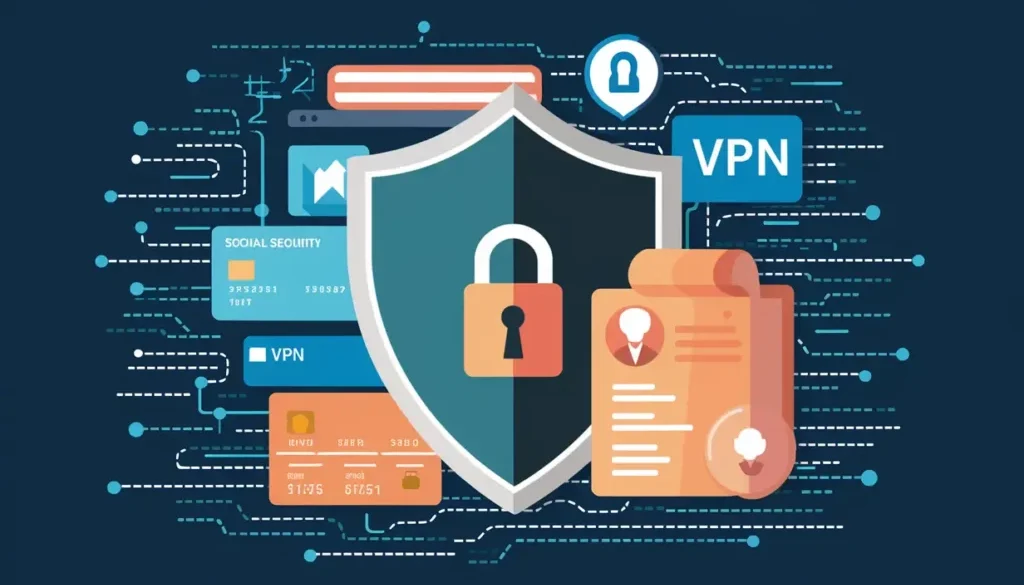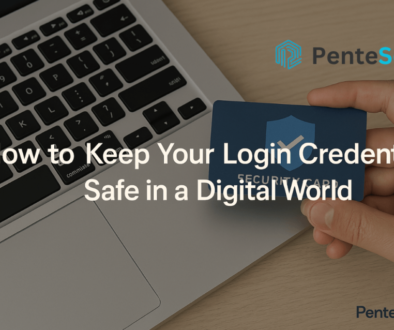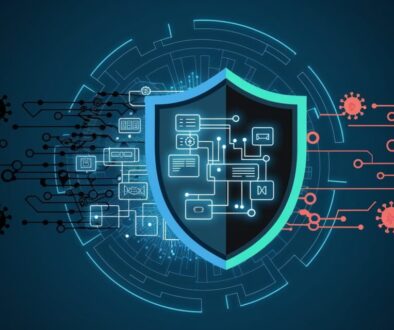Identity Theft Prevention: How VPNs and Strong Security Practices Can Safeguard Your Personal Information
Today, identity theft has become a prevalent and concerning issue that impacts millions of individuals and organizations worldwide. This nefarious crime involves the unauthorized acquisition and use of someone else’s personal information—such as Social Security numbers, credit card details, and bank account credentials—to commit fraud or other illegal activities. The repercussions of identity theft are severe and multifaceted, affecting individuals’ financial stability, reputation, and emotional well-being. Identity theft prevention: How VPNs and strong security practices can safeguard your personal information is essential in this digital age. Adopting robust security measures and using tools like VPNs can significantly reduce the risk of identity theft and protect your sensitive data from malicious actors.
Given the gravity of these impacts, implementing effective prevention measures to protect personal information is not just a precaution but a necessity. In this blog, we will explore the integral role of Virtual Private Networks (VPNs) and robust security practices in safeguarding against identity theft and provide practical strategies to enhance digital security.
Understanding Identity Theft
Definition and Scope
Identity theft occurs when an individual’s personal information is stolen and used without permission to commit fraud. This can include obtaining credit cards, opening bank accounts, or making significant purchases in the victim’s name. Cybercriminals employ various methods to achieve this, including:
- Phishing involves fraudulent emails or messages that trick individuals into providing sensitive information. For example, a phishing email might appear to come from a legitimate bank and ask recipients to click a link and enter their login credentials.
- Data Breaches: Cybercriminals often target large organizations to access and steal personal data. A notable example is the 2017 Equifax breach, which exposed the sensitive information of approximately 147 million people due to a vulnerability in Equifax’s systems.
- Social Engineering: Attackers manipulate individuals into divulging confidential information through deceitful means. This can include impersonating authority figures or using psychological tactics to gain trust.
Consequences of Identity Theft
The consequences of identity theft are extensive and can be devastating:
- Financial Repercussions: Victims may experience significant financial losses due to fraudulent transactions or misuse of credit. According to the Federal Trade Commission (FTC), in 2022, Americans lost nearly $8.8 billion to fraud, with identity theft being a major contributor.
- Reputational Damage: Identity theft can tarnish an individual’s reputation, mainly if stolen information is used to commit crimes or engage in illicit activities.
- Psychological and Emotional Impact: The stress and anxiety of dealing with identity theft can be overwhelming. Victims often face emotional distress, including feelings of violation, helplessness, and paranoia.
The Role of VPNs in Preventing Identity Theft
What is a VPN?
A Virtual Private Network (VPN) is a service that creates a secure and encrypted connection over a less secure network, such as the Internet. By using a
, your internet traffic is routed through a secure server, masking your IP address and encrypting your data.
How VPNs Work to Secure Internet Connections
VPNs operate by establishing a secure “tunnel” between your device and the VPN server. This tunnel encrypts all data transmitted between your device and the server, making it nearly impossible for hackers and other third parties to intercept or decipher the information.
Benefits of Using a VPN
- Encryption: VPNs employ advanced encryption protocols (such as AES-256) to protect your data from eavesdroppers. When you use a VPN, your internet activity is encrypted, preventing ISPs, hackers, and even government agencies from monitoring your online behavior.
- IP Masking: A VPN enhances your privacy by masking your IP address. This means that your online activities cannot be traced back to your actual IP address, reducing the risk of being targeted by cybercriminals.
- Safe Public Wi-Fi Usage: Public Wi-Fi networks are notoriously insecure, often leaving users vulnerable to man-in-the-middle attacks. Using a VPN on public Wi-Fi ensures that your data is encrypted, protecting it from potential interception by malicious actors.
Selecting a Reliable VPN Service
To maximize security, choosing a reliable VPN provider is crucial. Here are key features to look for:
- No-Logs Policy: Ensure the VPN provider does not keep logs of your online activities, which protects your privacy in case of a data breach or legal inquiry.
- Strong Encryption Standards: To ensure your data remains secure, look for VPNs with robust encryption protocols, such as AES-256.
- Global Server Coverage: A wide range of servers allows you to choose different locations, enhancing your privacy and access to geo-restricted content.
Comprehensive Security Practices for Identity Theft Prevention
Strong Password Management
- Creating Strong Passwords: A secure password is essential for protecting your accounts. Strong passwords should include a mix of upper- and lowercase letters, numbers, and special characters. Avoid using easily guessable information such as birthdays or common words.
- Password Managers: Password managers are tools that generate, store, and manage your passwords securely. They help you create complex passwords and prevent the reuse of passwords across different accounts. For instance, LastPass and 1Password are popular password managers with robust security features.
Two-factor authentication (2FA)
- Explanation of 2FA: Two-factor authentication (2FA) adds an additional layer of security by requiring two forms of verification before granting access to an account. Typically, this involves something you know (e.g., a password) and something you have (e.g., a mobile device or authentication app).
- Implementing 2FA: To enable 2FA, go to your account’s security settings and follow the instructions to set it up. Popular platforms such as Google, Facebook, and banking apps offer 2FA options to enhance account security.
Regular Software Updates
- Importance of Updates: Software updates frequently include security patches that address vulnerabilities and protect against emerging threats. For instance, the WannaCry ransomware attack in 2017 exploited a vulnerability in Microsoft Windows that had been patched in a subsequent update.
- Automating Updates: Configure your devices and applications to update automatically, ensuring you always have the latest security patches. This minimizes the risk of being compromised due to outdated software.
Recognizing and Avoiding Phishing Scams
- Identifying Phishing Attempts: Phishing scams often involve unsolicited emails or messages that appear to come from legitimate sources. Common signs include misspelled URLs, generic greetings, and urgent requests for personal information.
- Best Practices: Verify the legitimacy of requests by contacting the organization using official contact details. Avoid clicking on links or downloading attachments from unknown or suspicious sources. Reporting phishing attempts to relevant authorities can also help prevent others from falling victim.
Additional Measures to Enhance Personal Information Security
Monitoring and Alerts
- Credit Monitoring Services: Credit monitoring services track changes to your credit report and alert you to suspicious activities. Services like Experian and TransUnion offer comprehensive credit monitoring solutions that help detect identity theft early.
- Setting Up Alerts: Enabling alerts for your bank accounts and credit cards can notify you of unauthorized transactions or changes. Most financial institutions offer customizable alert settings for added security.
Secure Your Devices
- Device Encryption: Encrypting your devices ensures that even if they are lost or stolen, unauthorized users cannot access your data. For this purpose, Windows and macOS provide built-in encryption tools (BitLocker and FileVault, respectively).
- Antivirus and Anti-Malware Software: Using reputable antivirus and anti-malware software helps protect your devices from malicious software. Programs like Norton, McAfee, and Malwarebytes offer comprehensive protection against cyber threats.
Data Backup
- Importance of Backups: Regular data backups are crucial for mitigating the impact of data loss due to cyberattacks or hardware failures. Backup solutions ensure that your important files are not permanently lost.
- Backup Solutions: For secure and accessible backups, consider using cloud-based services such as Google Drive, Dropbox, or OneDrive. Additionally, maintain physical backups on external drives or other storage media for redundancy.
Conclusion
In conclusion, safeguarding personal information from identity theft requires a multifaceted approach that includes technological tools and diligent security practices. VPNs protect your data by encrypting your internet connection and masking your IP address. At the same time, strong security practices such as password management, two-factor authentication, and regular software updates provide a robust defense against various cyber threats.
Implementing the strategies outlined in this blog can significantly reduce the risk of identity theft. We encourage you to proactively enhance your digital security and explore additional resources to stay informed about emerging threats and security best practices.
Call to Action
We invite you to subscribe to our monthly newsletter and follow us on our Facebook, X, and Pinterest channels for more insights and updates on cybersecurity trends and best practices. Our blog provides valuable information and resources to help you stay informed and prepared against evolving threats.
Engage with our community to share knowledge, ask questions, and stay connected with industry developments. Visit our About Us page to learn more about who we are and what we do. Furthermore, please reach out through our contact page if you have any questions. You can also explore our services to discover how we can help enhance your security posture.
Frequently Asked Questions
Identity theft involves the unauthorized acquisition and use of personal information, such as Social Security numbers or credit card details, to commit fraud or other illegal activities. It can occur through various methods, including phishing, data breaches, and social engineering.
A Virtual Private Network (VPN) helps prevent identity theft by encrypting your internet connection and masking your IP address, making it difficult for cybercriminals to intercept your data or trace your online activities.
Key security practices include using strong, unique passwords managed through a password manager, enabling two-factor authentication (2FA) on accounts, regularly updating software to patch vulnerabilities, and being vigilant against phishing scams.
Two-factor authentication (2FA) adds an extra layer of security by requiring two forms of verification before granting access to an account. This makes it much harder for attackers to gain unauthorized access even if they have your password.
Additional measures include monitoring your credit through credit monitoring services, setting up alerts for suspicious activities on bank accounts, encrypting your devices, using antivirus and anti-malware software, and regularly backing up your data to secure storage.




